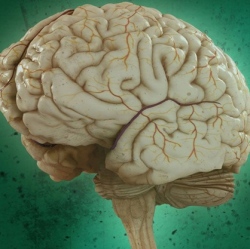
A study suggests that inadequate amount of stimulation in the workplace and an unclean working environment can both affect the brain functions of employees in the long run. Researchers have been debating whether dirty workplace or working in an unstimulating environment took the biggest toll on brain health as people aged.
"Psychologists say that the brain is a muscle, while industrial hygienists point to chemicals in the work environment that may cause decline," explained Joseph Grzywacz, the Norejane Hendrickson Professor of Family and Child Sciences and lead researcher on the study, in a statement.
The new study, published in the Journal of Occupational and Environmental Medicine, suggests that both workplace cleanliness and stimulation plays an important role in the long-term cognitive well-being of employees.
"There are real things in the workplace that can shape cognitive function: some that you can see or touch, and others you can’t. We showed that both matter to cognitive health in adulthood," Grywacs added in a press release.
For the study, researchers analyzed the data of 4,963 adults aging from 32 to 84 from the 48 contiguous states. The researchers the individual workplace of each participant and their ability to maintain and later use information they learned. Executive functioning skills such as their ability to complete tasks, manage time and pay attention were also observed. Each participant was also asked if they are experiencing any issues in their memory.
Their study resulted into two major findings. First, researchers discovered that learning new skills and facing new challenges resulted in stronger cognitive performance particularly for women as they aged. On the other hand, cognitive decline were observed in both men and women exposed to dirty working environment.
Their findings suggests that higher stimulation in the workplace can improve the cognitive performance of the employees, but at the same time, maintaining clean working environment is also very important to prevent possible decrease in brain function of the employees.
